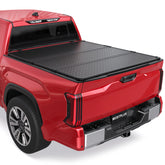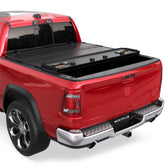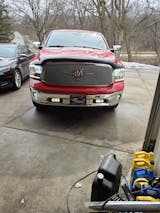How long do car batteries last?
While our lives are punctuated by the fear of a smartphone battery failure, do we have the same fear when it comes to our vehicle? Yes, we may tend to forget it, but our (internal combustion) vehicles also have a battery.
It recharges itself as you drive and powers electrical devices such as the car radio, windows and headlights. The battery is powered by an alternator. So how long does a battery last?
Average battery life
The average life of a car battery is 4 to 5 years, or 1,000 to 1,500 charge cycles. However, your car's original battery will usually last longer. That doesn't mean you should systematically replace your car battery every 4 or 5 years.
If you don't notice a lack of power when starting your car after 4 or 5 years, you don't need to replace your battery. You should wait for the first signs of battery fatigue before considering replacement. Note that battery failure is sometimes indicated by a red light.

What factors affect battery life?
- A number of factors can shorten the life of a car battery. A battery wears out more quickly if it is left idle for too long. If your vehicle sits idle for long periods of time, your battery will slowly drain until it runs out of power. When this happens, the battery may no longer be rechargeable. If you don't use your car very often, remember to start it regularly to maintain its condition.
- On the other hand, if one battery is overloaded, it won't last as long as the others. For example, if you take a lot of short trips with the engine running, you'll have to start the engine a lot. This will cause the battery to wear out prematurely. Similarly, if the car is equipped with various gadgets, the battery will wear out more quickly because it will be under more strain.
- Temperature changes also accelerate battery wear. Heat promotes discharge and can cause a loss of capacity. To prevent this, place a sunshade on the windshield.
How can I extend battery life?
- When you buy a battery, make sure its power and amperage match the needs of your vehicle.
- Don't use your car for short, frequent trips; use other means of transportation. This is because the battery is put under a lot of stress when starting, and the alternator will not be able to compensate if the trip is too short. Eventually, the battery will run out of charge.
- Check your battery regularly. Don't wait until the battery is flat to recharge it, as this can accelerate its deterioration.
- If you have a battery that requires regular maintenance, follow your dealer's advice to keep it in good condition. In particular, maintain the electrolyte at its normal level, respecting the required acidity.
- Keep your alternator in good working order. A faulty alternator contributes to battery wear and tear, as the battery is heavily stressed to meet electrical energy requirements.
- Whenever possible, park your vehicle in a sheltered area. Severe climates can cause batteries to malfunction and wear out prematurely.

What are the differences between diesel, gasoline, hybrid and electric batteries?
A car won't start without a battery. Before you buy a new battery, it's important to know what your needs are so you can choose the right model.
So ask yourself the right questions: Do you have a gasoline, diesel, hybrid or electric car? Does your car have a start/stop system? What is the displacement of your car? Some car models require a lot of energy to start, and an unsuitable battery won't last long...
- Diesel Batteries:Diesel engines require more starting capacity than gasoline engines. Typical battery capacities range from 32 to 80 or even 100 Ah. And in a diesel, the spark plugs are preheated by the combustion of diesel fuel. As a result, diesel vehicle batteries have a higher amperage than those of gasoline models.
- Gasoline Battery:While it's perfectly possible to install a diesel battery in a gasoline vehicle, the opposite is not recommended, at least if you want to drive safely for many years. Using a "gasoline" battery in a diesel vehicle will quickly lead to power problems when starting, as well as premature battery discharge.
- Hybrid batteries: In a hybrid car (gasoline or diesel), the battery is accompanied by a small electric motor. The purpose of this battery is to recover kinetic energy during deceleration and braking, convert it to electricity, and store it in the battery. While the battery of an internal combustion engine car has a life span of about 4 or 5 years, the battery of a hybrid car usually lasts a little longer: between 5 and 8 years.
- Electric battery (lithium): On average, an electric battery lasts between 200,000 and 500,000 km, depending on how the car is used. How does a lithium battery work? By circulating electrons and creating a potential difference between two electrodes. One electrode is negative. The other is positive. And both are immersed in an ion-conducting fluid called an electrolyte.
- Electric battery (graphene):Like a gasoline-powered car, an electric car's battery is 12 volts to properly activate the high battery and power accessories such as the steering wheel or heated seats. Graphene batteries may soon replace traditional lithium batteries. More durable and less prone to wear and tear, these graphene batteries (derived from graphite, itself derived from carbon) will have an even longer life and therefore require fewer battery changes.
Featured Products
- $479.99
$499.99- $479.99
- Unit price
- / per
- $549.99
$559.99- $549.99
- Unit price
- / per
- $489.99
- $489.99
- Unit price
- / per
- $469.99
$489.67- $469.99
- Unit price
- / per




















